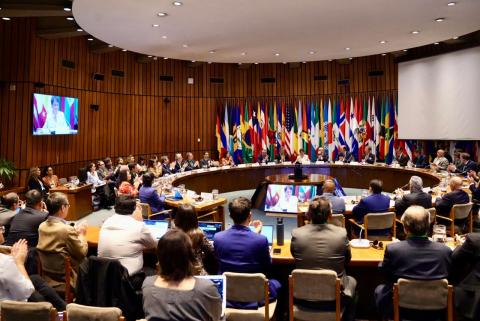Speech
The Economic Commission for Latin America and the Caribbean (ECLAC) and the Pan American Health Organization (PAHO) will hold a side event about road safety in the region in the framework of the Second Global High-Level Conference on this topic, which will take place in Brazil on November 18-19, 2015.
According to both United Nations organizations, safe, convenient and accessibly priced mobility is one of the premises of sustainable development and the post-2015 agenda goals. For that reason, road safety must be part of public policy at a national and regional level.
Participants in the side event, to be held on November 18, will include officials from ministries of public works, health and transportation as well as from various countries’ national road safety agencies, United Nations System organizations and other multilateral institutions. They will debate the regional situation and discuss how to set actions right during the second part of the decade of action for road safety, decreed by the United Nations from 2011 to 2020.
Road safety is a relevant topic for Latin America and the Caribbean. Despite national and multilateral efforts, there are still areas that must be bolstered to improve regional performance and reach the reduction goal established for the end of this decade.
In Central America, for example, pedestrians represent up to 31% of all fatalities stemming from traffic accidents, whereas in countries such as the United States and Canada that figure stands at 12% and 14%, respectively.
At the event, ECLAC and PAHO will address the current state of road safety in Latin America and the Caribbean and the main strategic guidelines for integrated policies on this matter. Afterwards, a roundtable with national officials will be organized to assess their views on challenges and best national and regional practices.
The panelists participating in the gathering will speak about improvements in handling information, the design and maintenance of infrastructure for vulnerable users, and other successful public policies aimed at reducing traffic accidents.
At the event’s conclusion, it is hoped that participants will join in a regional commitment to redouble efforts to comply with the goal of reducing by half the number of killed and injured people, according to the new sustainable development objectives of the 2030 agenda.

